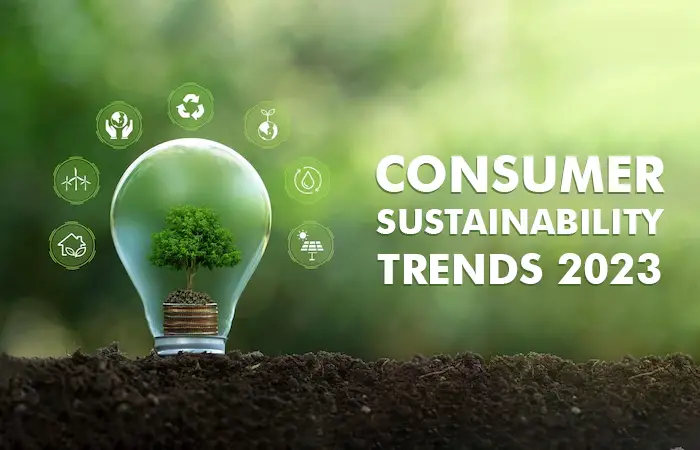Sustainability has evolved into a top priority of consumers and retailers are tweaking their ways to respond to the same. A report published by Deloitte revealed that 55% of consumers recently purchased a sustainable product or availed of such a service. Amidst the growing demand for eco-friendly products, retailers are trying to reduce their carbon footprint by combating the detrimental effects of climate change and reducing wastage. Read on to know about the consumer sustainability trends we can expect in 2023.
Greater importance to sustainability practices
Consumers are levying more interest in the manufacturing of products urging the brands to become more transparent with their practices. This brings under its purview materials used, animal welfare practices, and also the working conditions. Germany has passed the Supply Chain Due Diligence Act to monitor the process which will enforce the implementation of greener supply chain practices starting next year. 30 countries around the globe have been surveyed by McKinsey of which 28 have extended their producer responsibility regulations for ensuring the manufacturers follow more sustainable business models. 75% of these countries have either implemented or are trying to impose stringent penalties for regulatory noncompliance.
Fewer emissions but better delivery
Online sales experienced a massive surge in the post-pandemic world and so did carbon emissions from delivery vehicles. This has urged industry leaders to search for more environmentally sustainable delivery methods. More and more brands can be seen switching to drones, electric vehicles, and cargo bikes to avoid running fossil-fuelled cars. BrightDrop, a startup launched by General Motors banks on the latest technology to offer all-electric vehicles which are being used by Walmart, FedEx, Verizon, and similar giants. Amazon has been adding electric vehicles to its European fleet in partnership with Mercedes-Benz. UK online grocer Ocado has made a $13.6 million investment in self-driving tech startup Wayve and is currently outfitting its delivery vehicles with Wayve’s technology. Online shopping is a greener alternative to visiting brick-and-mortar stores as it reduces consumer trips and the associated fuel usage. Various retailers shifted to the online marketplace during the pandemic and aren’t showing any interest in opening their physical locations.
Reuse & recycle
Retail is infamous for generating a lot of waste and this scenario just tends to worsen with every passing day. The e-commerce return rate is 23.44% meaning one in four parcels are returned thus heightening packaging waste. Thus, cutting down on this waste is one of the biggest consumer sustainability trends for 2023. European retailer Zabka has set the date for 2025 to make all its packaging recyclable. Fast-fashion brands like Zara have implemented demand planning to fight waste by accurately predicting the demand for seasonal items. A circular economy model encourages the recycling and reusing of existing materials and products. Both Starbucks and McDonald’s have hopped onto the bandwagon and are trying to expand their reusable cup programs whereas Ikea plans to become fully circular within 2030. Accenture has predicted that the circular economy model will generate an incremental $35 billion of value by 2030 from the reduced costs in consumer-packaged goods.
Conclusion
According to the United Nations World Commission on Environment and Development, sustainable development strives for meeting the needs of the present without compromising on the ability of future generations to cater to their own needs. The ultimate aim here is to preserve all resources while caring for the environment and ensuring safety for all. For every business owner, the climate is an important factor for consideration. While in previous years, sustainability felt more like a ‘nice to have,’ a paradigm shift will be encountered in 2023 toward accountability and action. It is high time for businesses to consider where they stand and reduce their carbon footprint both in the short and long term to sustain in the race for longer.

